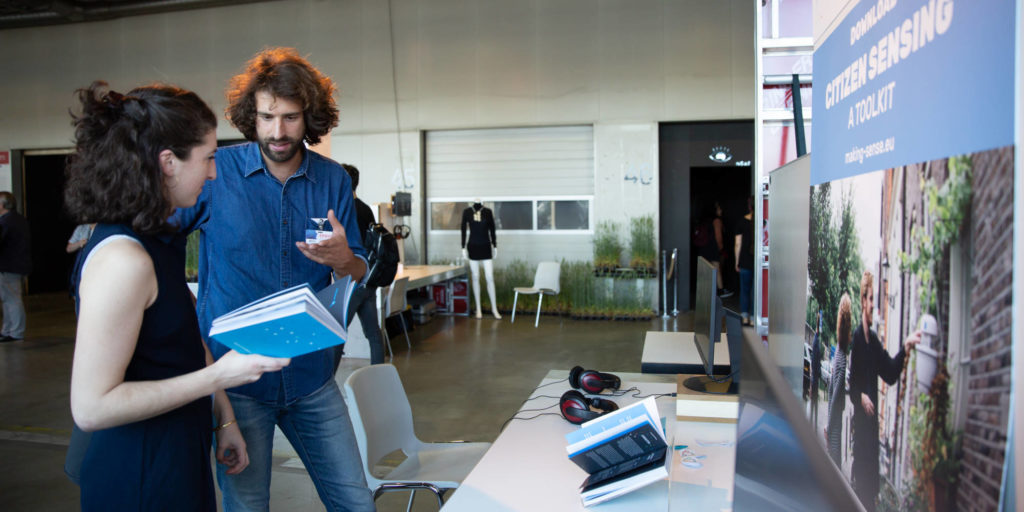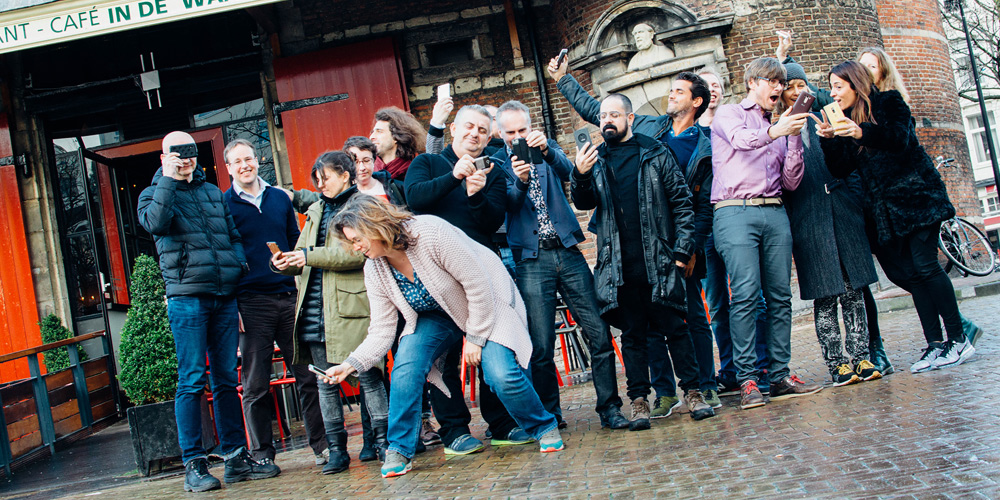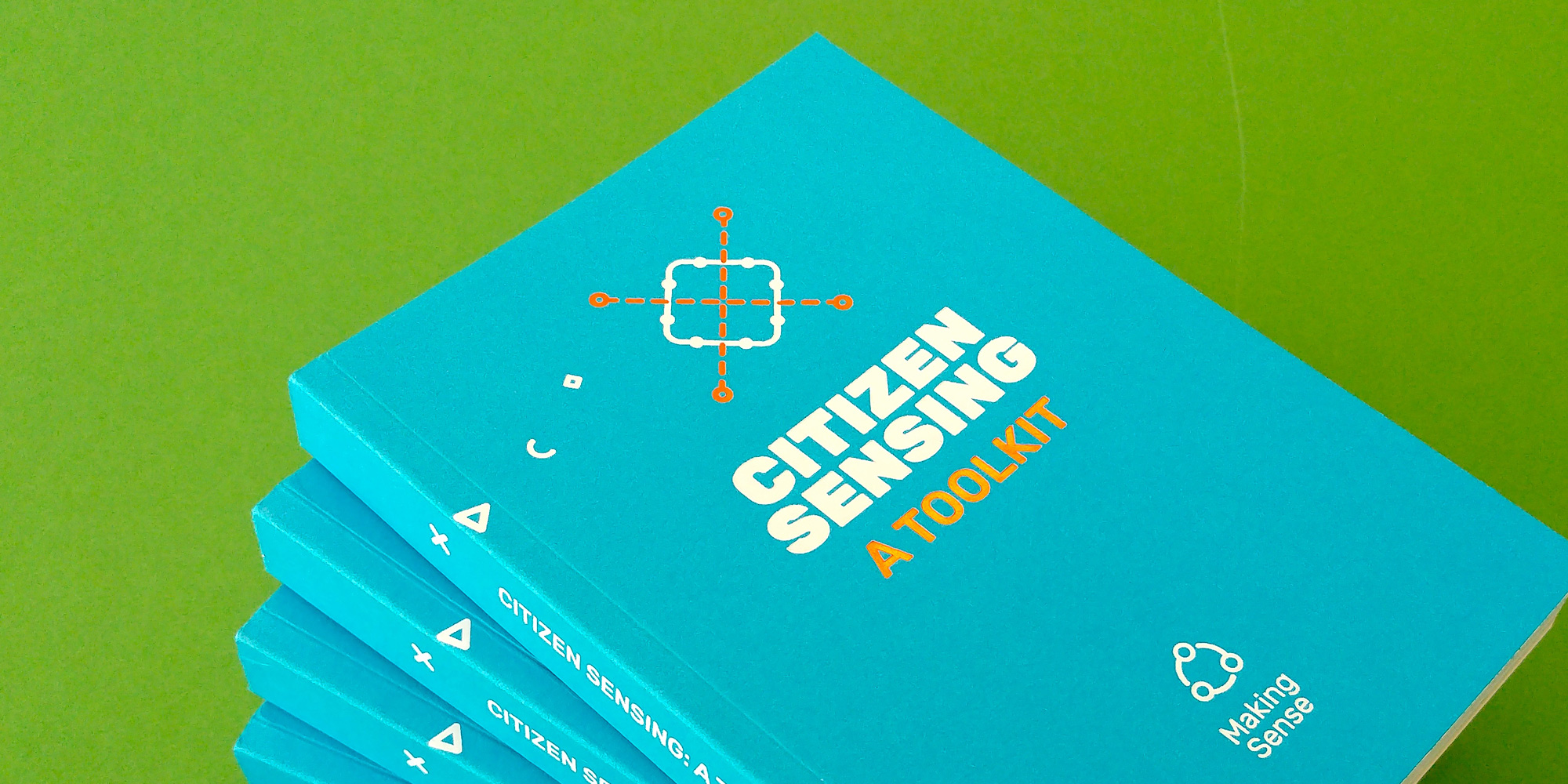STARTS PRIZE’18 – Honorary Mention
Making Sense was a project funded by the European Commission within the H2020 Call ICT2015 Research and Innovation, under the CAPS “Collective Awareness Platforms for Sustainability and Social Innovation” programme. It was designed to show how open-source software, open-source hardware, digital maker practices and open-source design could be used effectively by local communities to appropriate their own sensing tools to make sense of their environments, and address environmental problems, mainly in air pollution, noise and nuclear radiation. Based on nine elaborate pilots in Amsterdam, Barcelona and Prishtina, Making Sense developed a toolkit for participatory sensing, aimed at deepening our understanding of the processes which can enable collective awareness for sustainability. The toolkit consists of hardware, software and guidelines.

The pilots have led us to develop a conceptual and methodological framework for participatory environmental maker practices, which we call “citizen sensing”. This framework acts as a guide to providing citizens, communities and middle ground organisations with the tools to enhance our everyday environmental awareness; in turn, these tools enable active intervention in our surroundings, change in our individual and collective practices, and ultimately, a hands-on transformation of the environment in which we live.
We have brought the learnings of the project together in a Creative Commons licensed, on-line and printed book containing the Making Sense framework, 25 tools, 6 cases, multiple portraits and seven key insights. The book was authored by 23 researchers and practitioners. Furthermore, we updated the Smart Citizen Kit and its platform. Making Sense ran between 2015 and 2018, and combined the efforts of Waag Society; University of Dundee; Fab Lab Barcelona at the Institute for Advanced Architecture in Catalonia; the Joint Research Centre of the European Commission; the Peer Educators Network, and University of Twente.

Credits:
Primary authors for the toolkit:
Making Sense project:
Mara Balestrini, Sihana Bejtullahu, Stefano Bocconi, Gijs Boerwinkel, Marc Boonstra, Douwe-Sjoerd Boschman, Guillem Camprodon, Saskia Coulson, Tomas Diez, Ioan Fazey, Drew Hemment, Christine van den Horn, Trim Ilazi, Ivonne Jansen-Dings, Frank Kresin, Dan McQuillan, Susana Nascimento, Emma Pareschi, Alexandre Pólvora, Ron Salaj, Michelle Scott, Gui Seiz, Mel Woods
Design of the book:
Lyall Bruce
Furthermore, we have a substantial list of collaborators, to be found on pages 220 and 221 of the Citizen Sensing Toolkit (2018)
Making Sense was funded by the European Commission within the H2020 Call ICT2015 Research and Innovation, specifically under the CAPS “Collective Awareness Platforms for Sustainability and Social Innovation” programme (grant number 688620).
Websites:
- http://making-sense.eu/
- https://smartcitizen.me/
- https://starts-prize.aec.at/
- https://www.starts.eu/


